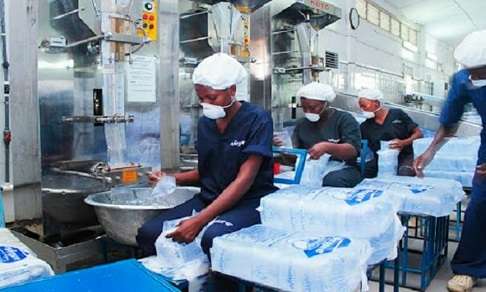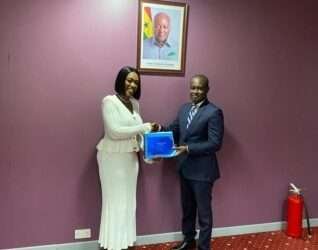The National Association of Sachet and Packaged Water Producers (NASPAWAP) has called on the government to indefinitely suspend the newly imposed 5% excise tax on finished plastics. This appeal, detailed in a recent statement, underscores the economic hardships the tax would impose on consumers.
NASPAWAP highlighted that bottled and sachet water prices have significantly increased since January 2024. This surge is attributed to the depreciation of the cedi against the US dollar. The association argues that the additional 5% excise tax, ostensibly aimed at mitigating environmental issues caused by plastics, would exacerbate financial burdens on consumers.
“There is an existing 10% environmental excise tax on selected plastics at the ports of entry. We were part of the decision to tax plastic granules at the entry ports.
“This method broadens the tax base since all plastic granules are imported. However, at the implementation stage, only a selected few were captured.”
National Association of Sachet and Packaged Water Producers (NASPAWAP)
“We believe the motive for the 5% extra excise tax is to generate funds to tackle the menace plastics pose to the environment,” NASPAWAP indicated.
NASPAWAP proposed a more efficient and less burdensome method to generate funds for plastic management. It suggested reducing the environmental excise tax rate to 1% at entry points, applicable to all imported plastic granules, and imposing a 10% tax on the CIF (Cost, Insurance, and Freight) value of semi-finished plastics imported into the country.
The association believes this approach would yield more funds for plastic management than the contentious 5% tax on finished products.
“Our suggestion to the government is to reinforce the environmental excise tax at the entry points by reducing the tax rate to 1% and making it applicable to all imported plastic granules without any exceptions.
“However, semi-finished plastics imported into the country should be taxed at 10% of the CIF value. We believe this will generate more funds for plastic management than the additional 5% excise tax on finished plastics.”
National Association of Sachet and Packaged Water Producers (NASPAWAP)
NASPAWAP emphasized that since the inception of plastics in Ghana, all interventions for managing plastic waste have been shouldered by the private sector, without any government subsidies.
The call to suspend the 5% excise tax aligns with previous industry concerns. In June 2024, the Ghana Plastic Manufacturers’ Association persistently urged the government to suspend the tax. They even threatened a one-day shutdown, potentially impacting over 30,000 workers, if the government did not retract the tax.
Broader Economic Implications
The imposition of the 5% excise tax on finished plastics comes at a time when Ghana’s economy is grappling with several challenges. The cedi’s depreciation has already strained consumers and businesses alike, leading to increased costs of goods and services.
The additional tax on plastics, a critical component in packaging, would likely result in higher prices for a wide range of products, further squeezing household budgets.
NASPAWAP’s concerns reflect the broader apprehensions within the business community about the impact of new taxes on economic stability. The association’s proposal aims to balance the need for environmental management funds with the economic realities faced by consumers and businesses.
NASPAWAP has urged the government to engage with stakeholders before making final decisions on the excise tax. They stressed the importance of considering industry input to devise more effective and less disruptive tax policies.
“NASPAWAP is calling on the government to heed the call to suspend indefinitely the additional 5% excise on finished plastics and engage with stakeholders.”
National Association of Sachet and Packaged Water Producers (NASPAWAP)
The outcome of this appeal remains to be seen. However, it is evident that the conversation around environmental taxes and economic sustainability will continue to be a critical issue for Ghana’s policymakers.
NASPAWAP’s call for the suspension of the 5% excise tax on finished plastics highlights the delicate balance between environmental sustainability and economic stability. The association’s proposed alternatives reflect a pragmatic approach to generating necessary funds for plastic waste management without unduly burdening consumers.
READ ALSO: Okyeame Kwame Recounts How His Wife Prevented Him From Dissing Obrafour





















